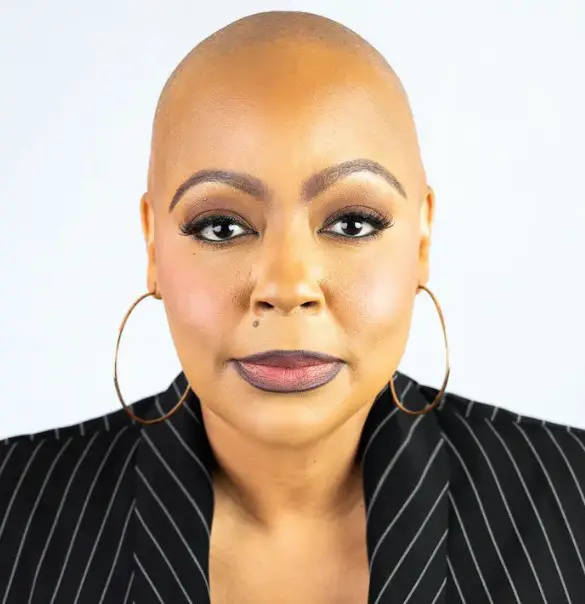Black Business Month renews the focus on African American entrepreneurs

August is Black Business Month, a time when many may seek to support their local Black-owned businesses.
In July 2020, Yvette Young and Sarah Thompson saw a local need to represent Black entrepreneurs and launched a resource for those seeking out those businesses: Shop Black CT.
Young is the Associate Vice President of Programs and Advocacy for The Village for Families and Children, a Hartford based nonprofit focused on aiding and supporting families. Thompson also works for The Village as the Senior Director of Marketing and Communications.
Shop Black CT, however, is entirely a volunteer run organization.
“We’re just a group of people who want to make a difference,” said Thompson, “but in all honesty it sorted of started with this idea thinking it would be one thing and it’s grown to much more.”
“For us,” Thompson said shortly after the site’s third anniversary, “every month is Black Business Month.”
Inspired by a desire to show support for communities impacted by the protests following the police killing of George Floyd as well as the Black-owned businesses which were disproportionately affected by the pandemic, the site originally launched with 175 businesses listed. Three years later the resource has listings for roughly 2000 businesses across Connecticut with a team of volunteers both maintaining the database and producing monthly videos highlighting individual businesses.

“For me, the reason why I have sort of invested my time into this project is because I’m a huge advocate for racial justice issues in our society,” said Young, “and I felt like this one was going to address the issue of economic injustice within the Black community after looking at the staggering 41% of Black-owned businesses that were closing during the pandemic.”
Young emphasized the site can help address the tiny marketing budget that many small businesses are left with after handling their other expenses.
“That limits the number of consumers that have access to them or even know that they existed,” she said.
According to a Black PR Wire analysis of U.S. Census Bureau data, Black business owners account for about 10% of U.S. businesses and about 30% of all minority-owned businesses, totaling approximately two million companies that are owned by Black Americans.
LaToya Williams-Belfort, the founder of the Fifteen Percent Pledge, a nonprofit that encourages retailers to pledge at least 15% of their shelf-space to Black-owned businesses, noted in a recent Newsweek op-ed that there was a 38% increase in Black business ownership spurred by entrepreneurs during the Covid pandemic.

“Despite this progress, Black entrepreneurs are struggling to stay afloat,” Williams-Belfort added, “With eight out of 10 Black-owned businesses expected to fail within the first 18 months, it’s clear corporations need to step up their role in creating opportunities and expanding purchasing power for Black businesses.”
Williams-Belfort’s Fifteen Percent Pledge focuses on supporting those businesses by partnering with major retailers such as Sephora, Bloomingdales, Macy’s, Old Navy and 25 other retail chains. However, successes on the local and promotional level are disappointing to the man widely credited with having started Black Business Month, John William Templeton.
“People have been trying it for the past 50 years,” Templeton said of efforts to alleviate Black economic inequality primarily through business promotions.
Black Business Month was first proposed in 2004 by Templeton, the former editor of the Silicon Valley Business Journal and the current founder of the Journal of Black Innovation. He was asked to compile a report on behalf of Fred Jordan, the then-chairman of the National Black Chamber of Commerce. Templeton proposed August for practical and symbolic reasons: “Most Black national conventions are in late July or early August, and we also have Marcus Garvey’s birthday and the anniversary of the March on Washington.”

Since then, he has worked to help establish and expand Black-owned enterprises with an eye towards creating businesses that can create the jobs and economic strength to move the needle.
“You look at a majority Black community and often there’s no economic anchor,” Templeton said. “A retailer or restaurant can’t survive without an economic anchor. So, our focus should be on things like biosecurity or bioengineering and creating large companies” instead of emphasizing single standalone businesses.
Templeton pointed to a Pew Research Center study that showed that 27% of Black-owned businesses, around 40,000 businesses are in the health care and social assistance sector, followed by about 14% being classified as professional, scientific and technical services.
“Every problem that we have relates to the fact that African Americans have 4% of the GDP, but we have 13% of the population,” Templeton said. “That’s a big determinator whether you’re in public housing or if you have a PhD. I was there for the beginning of Silicon Valley, so I watched and was part of the greatest wealth creation in human history. There’s nothing about those folks that can’t be replicated.”